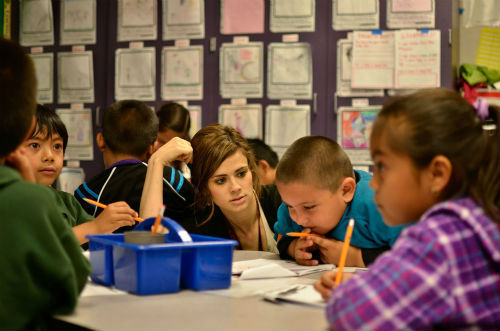
Effective leadership in the classroom, according to Theo Wubbels (@thwubbels), one of the world’s most respected experts in the area of teacher training and teacher-student relationships, “depends on healthy and productive interpersonal relationships between teachers and students. In such relationships, students feel close to their teacher and they trust and value him or her. From the perspective of teachers’ behaviors, this implies that teachers show a good mix of agency and communion in the classroom.” Naturally, this “mix” will vary from situation to situation. However, Leadership, Theo believes, “depends on the teacher’s capacity to adapt.” Teachers must be able to show “all kind of behaviors when the situation asks for it.” He concludes, “a good teacher is not a boss or friend although he or she can be bossy or friendly, when needed.”
What do our Top 12 Global Teacher bloggers think about leadership? We asked them to share their answers to this question: What are the best ways a teacher can demonstrate leadership in the classroom?
Karen Lirenman from Canada (@KLirenman) states, “Educators of 2015 no longer can use the excuse that they didn’t know when there are so many places to help them be in the know.” She encourages a global collective leadership model for teachers. This is achieved by sharing teaching practices and curricula with other teachers through social media, noting, “If I didn’t share the only place I’d have impact is with my students.” Read More.
Silvia Tolisano (@langwitches) points to the importance of teachers as role models, experiential learning, student sharing, and most importantly, trust. For true leadership to work and inspire, trust must go both ways: student to teacher and teacher to student. Read More.
New Zealand based Richard Wells (@iPadWells) points to an increasing wave of dependency (children on their parents and teachers) that is getting in the way of independent learning. As a remedy, he recommends giving students more control over assignments and encouraging them to collaborate amongst themselves. Read More.
Vicki Davis (@coolcatteacher) shares some hot tips for teachers to inspire leadership that multiplies rather than diminishes the classroom potential. One tip is to consult students for input on lessons and assignments. Read More.
Referred by Top 12 Blogger Adam Steiner (@steineredtech), Liz Cox (@elizabethkcox), PhD student at Boston College and English teacher at Needham High School, fosters a community of learners when she teaches. To do this, she follows the guiding principles of “respect and responsibility”, which often means taking a good “inquiry stance” at her own teaching methods. The goal is to demonstrate an “ethic of care”. Read More.
Joe Bower (@joe_bower) recommends teachers be idealistic, healthy, and interesting. But he notes, they can’t do it alone; teachers have to help other teachers to inspire leadership in themselves and each other. Read More.
Our Blogger at Large, Beth Holland (@brholland), reminds teachers to have empathy for themselves, for students and for colleagues if they want to be good leaders. By having empathy, Beth says, “we remember what it felt like to struggle and then achieve the desired skill or concept.” Read More.
Referred by Top 12 Blogger Todd Finley (@finleyt), Jennifer Gonzalez (@cultofpedagogy) gives us ten unexpected tips for teachers to become fiercer leaders in the classroom. Some examples: trying something new that you are not good at, and being silly and funny. Read More.
Pauline Hawkins (@PaulineDHawkins), author of Uncommon Core: 25 Ways to Help Your Child Succeed in a Cookie Cutter Educational System, encourages teachers to be leaders not just in the classroom, but outside of it too, in the realm of education reform and beyond. “Teachers should not be afraid to stand up for what they know is right; after all, we are the experts.” Read More.
Craig Kemp from Singapore (@mrkempnz) advocates listening and being super encouraging to students in order to instill leadership in them. He also advises asking for feedback, and using social media to make learning a 24/7 activity. Read More.
Tom Bennett (@tombennett71), Joe Bower, Susan Bowles (@FloridaKteacher), Lisa Currie (@RippleKindness), Vicki Davis, Todd Finley, Pauline Hawkins, Craig Kemp, Karen Lirenman, Adam Steiner, Silvia Tolisano, and Richard Wells are The Global Search for Education 2014 Top 12 Global Teacher Bloggers.
(Special thanks to Dr. Theo Wubbels, Professor of Education, Admissions Dean, Utrecht University)
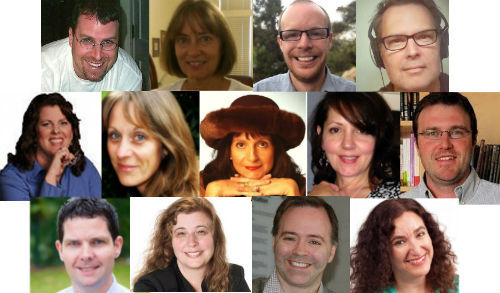
(All photos are courtesy of Michael Horn)
Join me and globally renowned thought leaders including Sir Michael Barber (UK), Dr. Michael Block (U.S.), Dr. Leon Botstein (U.S.), Professor Clay Christensen (U.S.), Dr. Linda Darling-Hammond (U.S.), Dr. MadhavChavan (India), Professor Michael Fullan (Canada), Professor Howard Gardner (U.S.), Professor Andy Hargreaves (U.S.), Professor Yvonne Hellman (The Netherlands), Professor Kristin Helstad (Norway), Jean Hendrickson (U.S.), Professor Rose Hipkins (New Zealand), Professor Cornelia Hoogland (Canada), Honourable Jeff Johnson (Canada), Mme. Chantal Kaufmann (Belgium), Dr. EijaKauppinen (Finland), State Secretary TapioKosunen (Finland), Professor Dominique Lafontaine (Belgium), Professor Hugh Lauder (UK), Lord Ken Macdonald (UK), Professor Geoff Masters (Australia), Professor Barry McGaw (Australia), Shiv Nadar (India), Professor R. Natarajan (India), Dr. Pak Tee Ng (Singapore), Dr. Denise Pope (US), Sridhar Rajagopalan (India), Dr. Diane Ravitch (U.S.), Richard Wilson Riley (U.S.), Sir Ken Robinson (UK), Professor Pasi Sahlberg (Finland), Professor Manabu Sato (Japan), Andreas Schleicher (PISA, OECD), Dr. Anthony Seldon (UK), Dr. David Shaffer (U.S.), Dr. Kirsten Sivesind (Norway), Chancellor Stephen Spahn (U.S.), Yves Theze (LyceeFrancais U.S.), Professor Charles Ungerleider (Canada), Professor Tony Wagner (U.S.), Sir David Watson (UK), Professor Dylan Wiliam (UK), Dr. Mark Wormald (UK), Professor Theo Wubbels (The Netherlands), Professor Michael Young (UK), and Professor Minxuan Zhang (China) as they explore the big picture education questions that all nations face today.
The Global Search for Education Community Page
C. M. Rubin is the author of two widely read online series for which she received a 2011 Upton Sinclair award, “The Global Search for Education” and “How Will We Read?” She is also the author of three bestselling books, including The Real Alice in Wonderland, is the publisher of CMRubinWorld, and is a Disruptor Foundation Fellow.
Follow C. M. Rubin on Twitter: www.twitter.com/@cmrubinworld


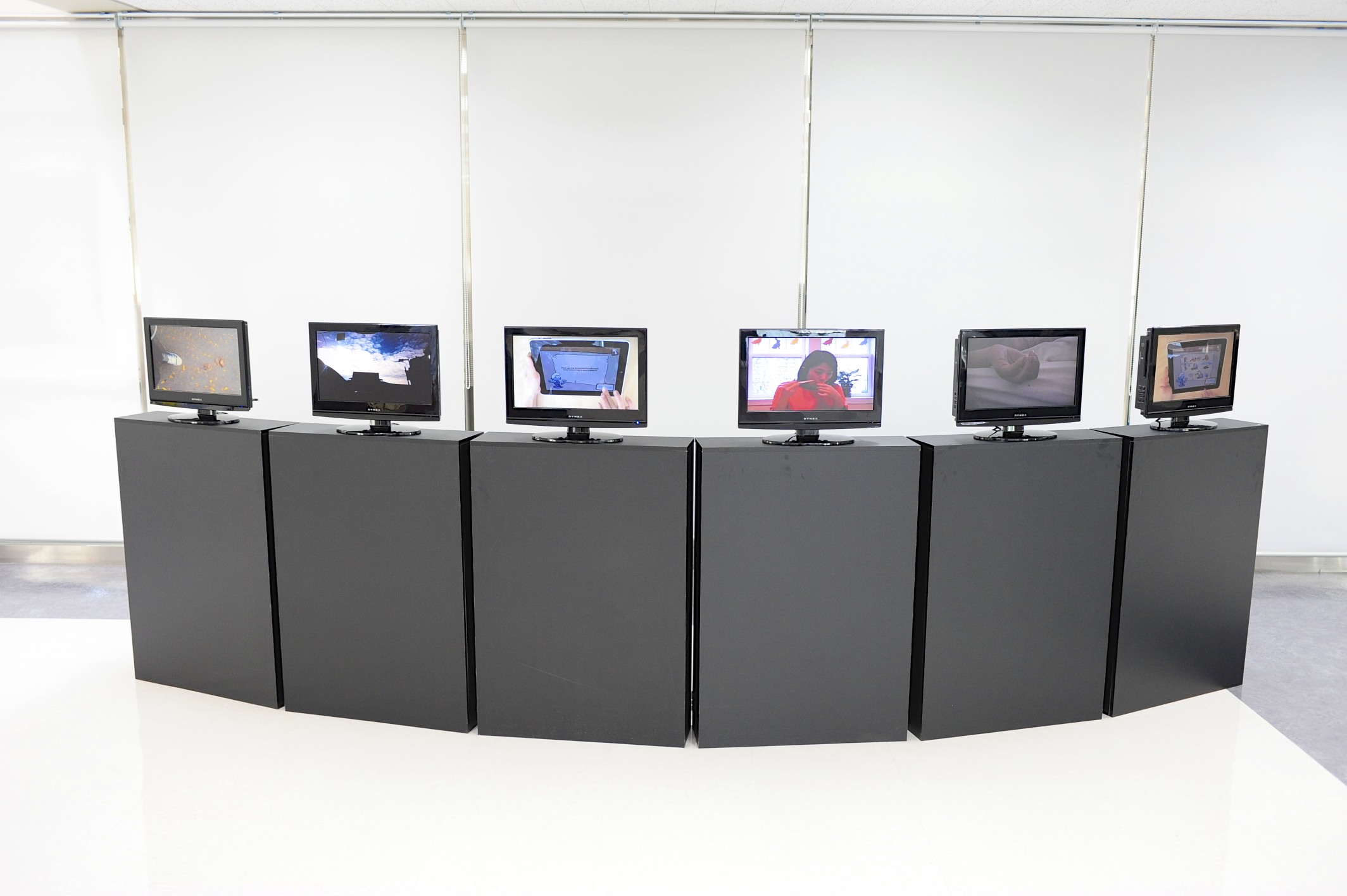
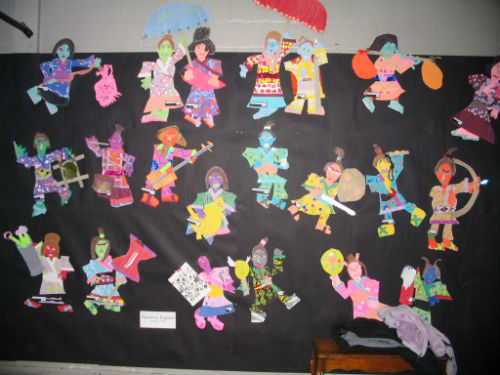

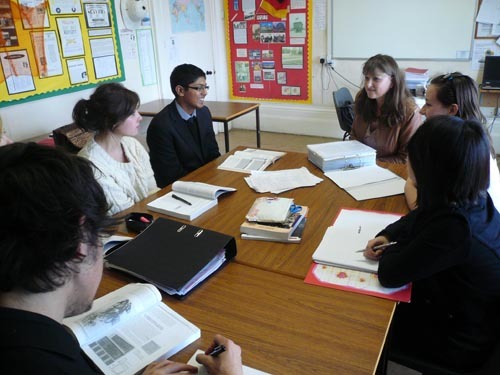
Recent Comments